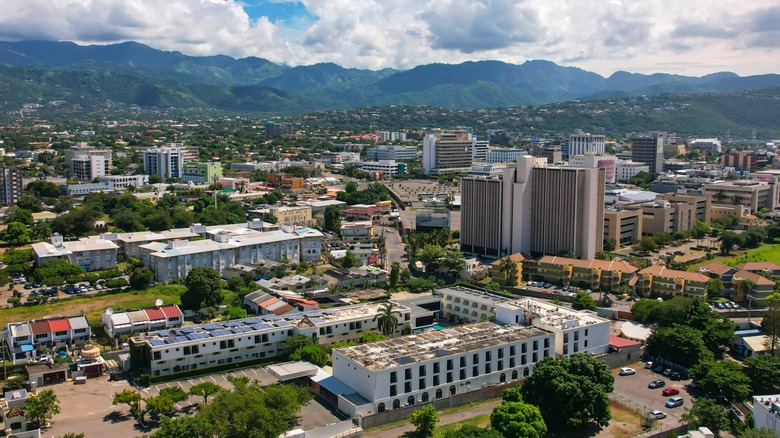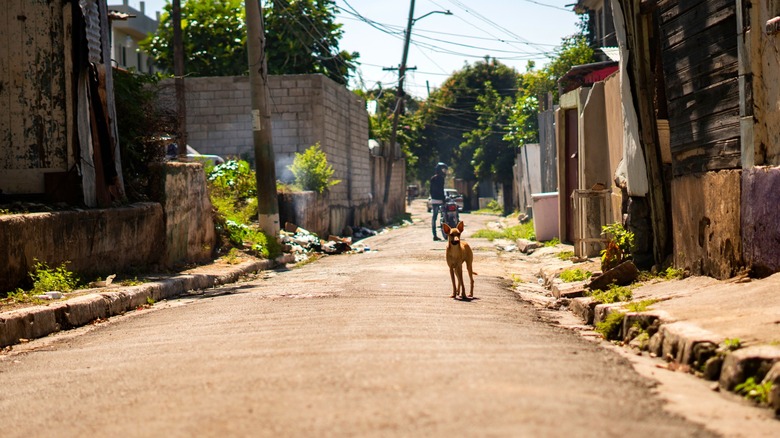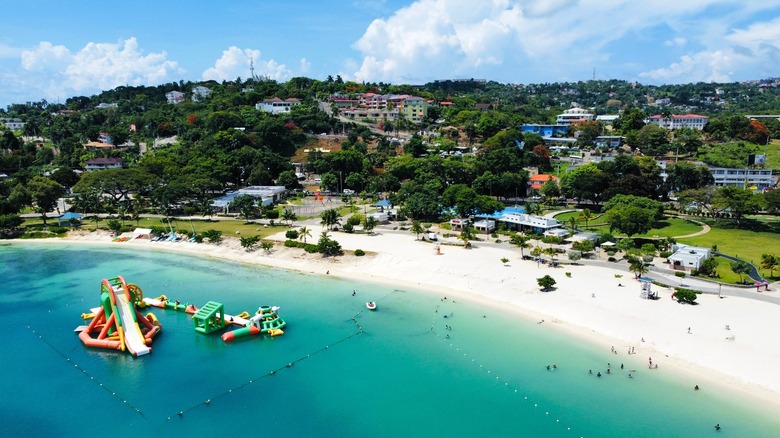The US Government Thinks You Should Reconsider Visiting This Dangerous Caribbean Destination
White sands, azure waters, radiant blue skys — Jamaica can be the quintessential Caribbean paradise. However, the U.S. Department of State has issued a Level 3 warning, urging Americans to "reconsider travel." This is the penultimate warning; Level 4 is "do not travel."
The State Department's concern is not Jamaica's major hurricanes that sever electricity, water, and other vital supplies. Rather, their concern is the island nation's rampant crime issue. Jamaica's homicide rate is among the highest in the Western Hemisphere. In 2023, the homicide rate hit 60.9 per 100,000 inhabitants. For context, the U.S. homicide rate is 7.5 per 100,000 inhabitants.
The State Department has a list of recommendations for those who travel to Jamaica. Vigilance and awareness are important, especially at night, when walking and driving in public is best avoided. Buses also present unnecessary risks, as do secluded areas, which is common sense. Renting a car is not advised, either, owing to bad road conditions and dangerous driving standards.
Kingston, Jamaica's gang capital
Kingston, Jamaica's capital, is over 330 years old and rich with colonial history, beaches, marijuana, and reggae, which emerged in the 1960s to became the country's most popular music genre. Alas, Kingston also has a reputation for gang violence that began in the 1970s, when Jamaica's two rival parties armed their supporters and began bloody inter-neighborhood violence that persists to this day.
The conflict's internal, feuding nature means that tourists are not expressly targeted. However, the risks of getting anywhere near this violence are obvious. It exists within a wider scourge of crime affecting Kingston, namely theft and sexual assault, causing the city to rank among the most dangerous destinations in the Caribbean.
The U.S. Embassy in Kingston prohibits staff from entering over a dozen areas of the city, especially downtown areas such as Trench Town and Tivoli Gardens. These areas and dozens of other streets, parks, and neighborhoods fall under the department's Level 4 "do not travel" warning.
Danger beyond the streets of Kingston
The danger is not limited to Kingston's gang territories and other dubious locales. Tourist hotspots, including luxury resorts, are also vulnerable. The U.S. Department of State receives many reports of sexual assault including cases that have occurred within supposedly secure resorts. Many American victims resort to U.S. embassy services because of inadequate local authorities. Regrettably, few instances of violence and assault against tourists lead to court, convictions, and justice.
Areas outside Kingston that have proved particularly dangerous include nearby Portmore, which has at least half a dozen unsafe neighborhoods. Further east are Central Village and Spanish Town, both of which are completely off-limits, according to U.S. officials.
This level of caution extends to Montego Bay, near some of Jamaica's best beach resorts. The city is a popular tourist spot but the palm-lined streets and five-star hotels are set against slum housing and inveterate crime — Rose Heights, Norwood, Canterbury, Flankers, and Salt Spring are all no-go neighborhoods.


